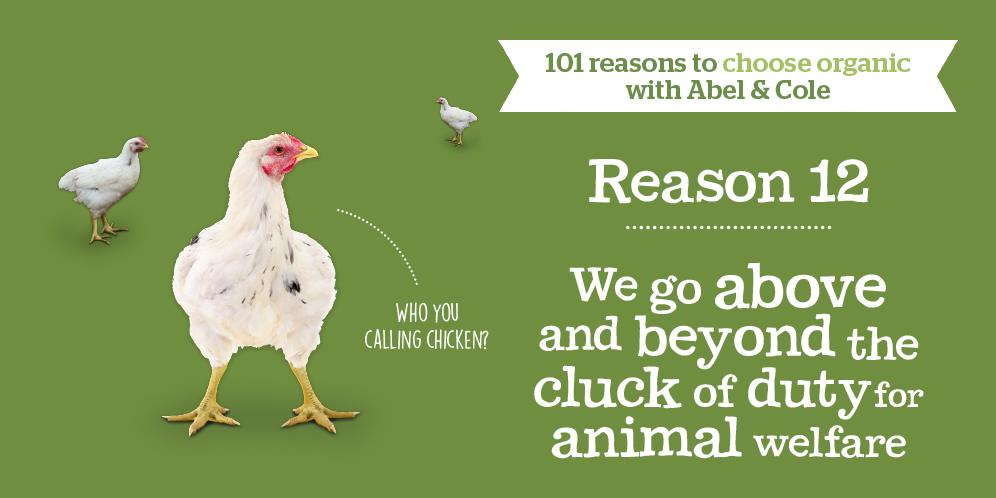With our fantastic organic farmer, Chris, we recently received a Compassion in World Farming, or CIWF (their much shorter nickname) award for our organic chicken and we couldn’t be more chuffed.
Reason 12

Founded in 1967 by a British farmer, Roberts, who wanted to make a difference when he saw the way intensive, factory farming was going. The ethical treatment of animals goes hand in hand with organic farming and Soil Association practices. It’s just a no brainer. Our Chris Labdon has been looking after his organic chickens with the highest standards of welfare for years and years.
What makes a good chicken?
Some of the things the CIWF look for when awarding a Good Chicken award are things like, lower stock density, the use of slow-growing birds (Chris’ birds take twice as long to grow on average compared to a supermarket chicken) and also ‘enrichment provision’. This means things like access to natural light, straw bales, perches, pecking objects, and shelter outdoors.
Above and beyond
These are things that all of Chris’ chickens enjoy in abundance. Chris’ chickens take months, not weeks to grow. Their feet are made for walking (and that’s just what they’ll do). Luckily for our chooks, they’ve plenty of time and space to explore the world, scratching and clucking about from first thing in the morning till the last thing at night.
All this time spent growing means they develop their muscles properly, so from breast to the thighs and wings...it’s chicken that tastes like chicken.
Myth busters: organic style
We’ve heard on the grapevine that there’s an idea out there that organic animals aren’t free ranging, or “high welfare”. We say pish posh! Here’s the ticket, whilst high welfare meat does have exceptional welfare standards (particularly compared to conventional farming practices), the main differences with organic meat is that it has the very highest animal welfare standards. Organic farms have lower levels of pesticides, no manufactured herbicides or artificial fertilisers and a more environmentally sustainable way of farming in tune with the land and natural environment. This means animals are free to roam, graze and forage on organic pasture for all sorts of critters and are fed a diet that’s as natural as possible, free from GM gubbins. So that’s a real organic diet, plenty of room to roam, cluck, tussle and forage the farm.
Consider this myth well and truly busted.


